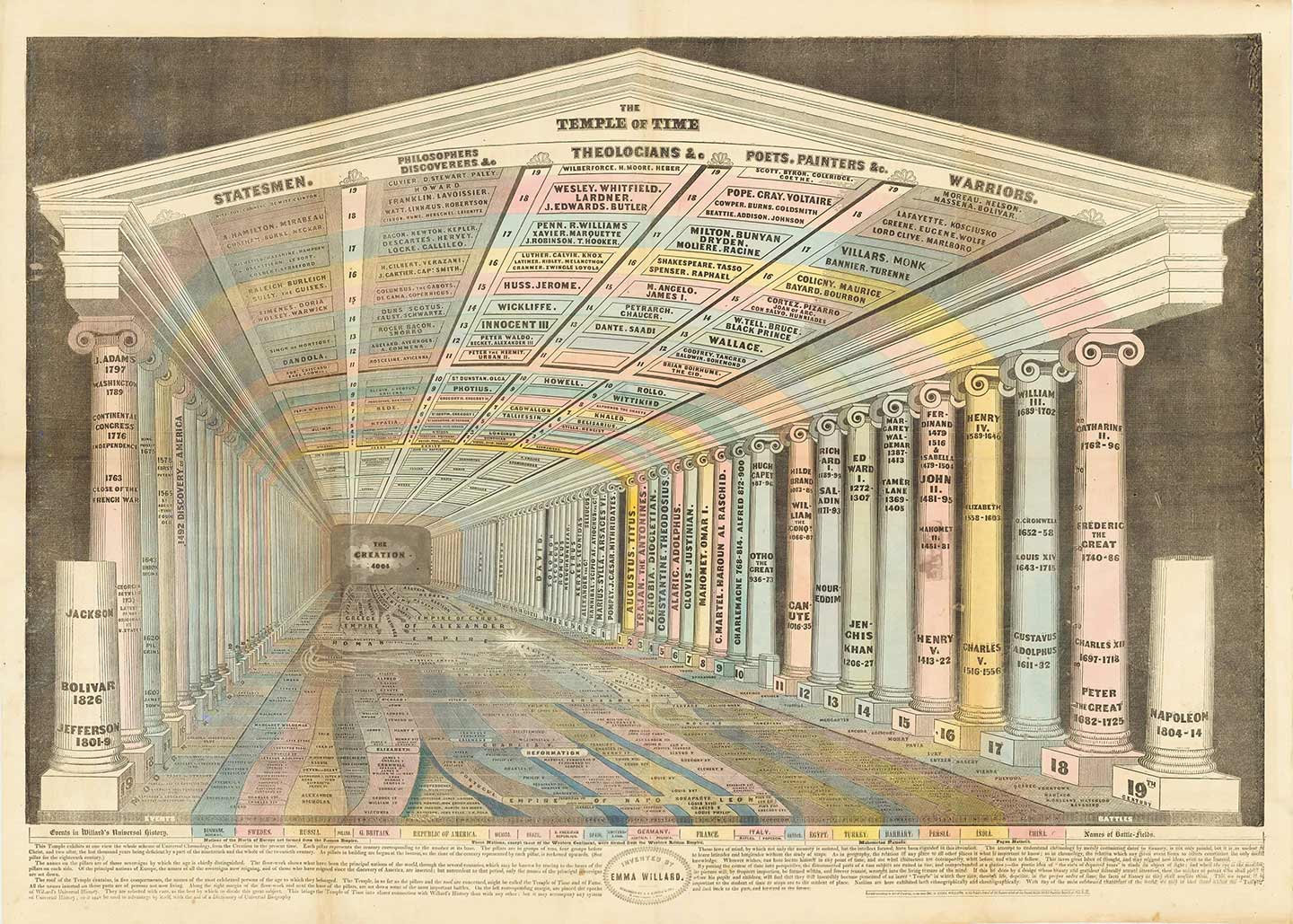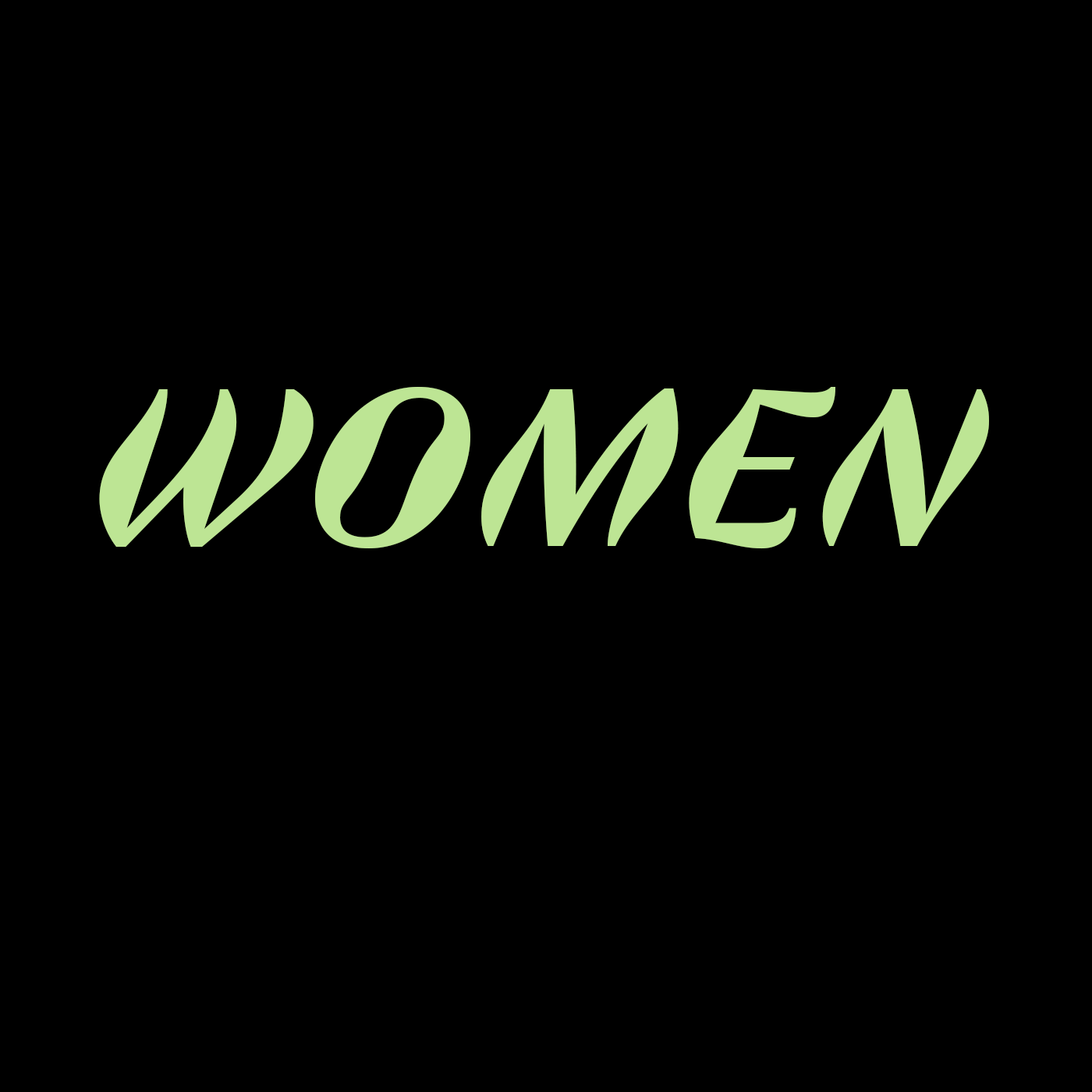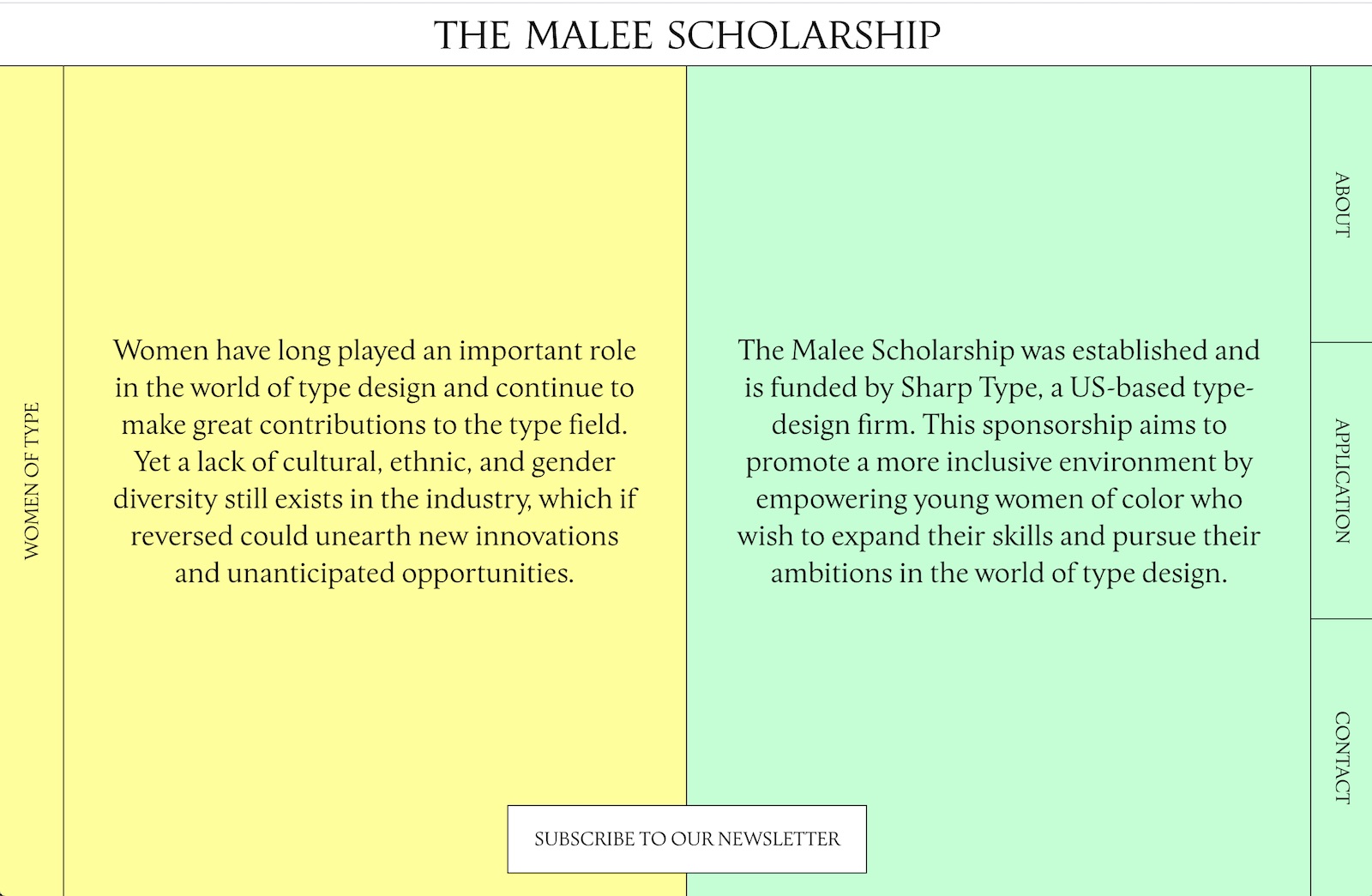This is Part 2 of the series, “What does a feminist graphic design history in the United States look like?” Read Part 1 here.
In the 19th and early 20th centuries, technological advancements helped information spread fast and far. The industrial revolution led to the creation of mass media as well as romantic and revolutionary outcomes. The mechanization of print culture facilitated the geographical spread of belief systems and information as well as offered the possibility to critique, question and reject established models of society to serve women’s rights.
Information Design

Emma Willard, Temple of Time, 1846. Accessed March 8, 2020: https://bostonraremaps.com/inventory/emma-willard-temple-of-time-1846



